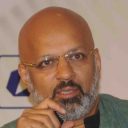Two hundred people in one room to discuss philanthropy! A few years back this would not have been considered possible. But the third of Dasra’s annual Indian Philanthropy Forums, held in Mumbai on 21 March, continued to build on previous successes.
And what a day it was! The topics ranged from making toilets aspirational to the challenges facing adolescent girls, skill development and rural artisans, ending with human rights. The previous evening saw 41 of India’s social entrepreneurs graduate from Dasra’s Social-Impact programme. This was the sixth time this programme had run. These graduates were trained to build sustainable organizations that will have deep social impact.
The day started off with Neera Nundy and Deval Sanghavi, co-founders of Dasra, describing the state of strategic philanthropy in India and developments over the past year. This was followed by a discussion on the changing face of Indian philanthropy with Aditi Kothari (a Dasra Giving Circle member), Charly Kleissner (K L Felicitas Foundation) and Jayant Sinha (Omidyar Network).
The panel discussions were of particular interest, since the speakers outlined the status of their sectors and an NGO in each of these sectors could possibly get funded over the next year through new Dasra Giving Circles. Jack Sim (of WTO – World Toilet Organisation) stole the show early in the day – first with a short movie and then with his talk, with loads of humour, about how we need to get people to use toilets by making toilets sexy. He talked about why people have to be charged for it: if toilets are given free, people do not value them. The discussion on enhancing youth employability reflected the debate on who funds the skilling programmes in India – industry, government or students. The panellists discussing empowering adolescent girls talked about sex education, child marriage, violence against women and other gender biases that affect the ability of young girls to decide their own futures.
After lunch Bain & Company’s India Philanthropy Report 2012 was released. The report, which has received a lot of media coverage in India, highlighted that 77 per cent of Indian philanthropists are novices with fewer than three years’ experience. The good news is that the key Indian philanthropists are in their thirties and plan to be more strategic and involved in their giving over the next five years.
This was followed by a talk on ‘philanthrocapitalism’ by Mathew Bishop, US Business Editor and New York Bureau Chief of the Economist. He expects philanthropy to increase because of the huge wealth creation in recent years, the growing inequality and the economic downturn. Various models for connecting philanthropy with development were discussed. Then Ashok Kurien and Nitin Nayar (Dasra Giving Circle members) talked about their perspectives on giving.
The last panel of the day was on human rights, and I participated in that panel. This was the first time that human rights were discussed at length at an Indian Philanthropy Forum, even though all the other topics discussed earlier in the day also related to violation of human rights in some manner. The other panellists were Kenneth Roth (Executive Director, Human Rights Watch), Priti Patkar (Co-founder, Prerana) and Satish Sahney (Former Commissioner of Police, Mumbai). The discussion highlighted global and local experiences and how we need to change people’s attitudes. The challenges and successful experiences of dealing with the authorities were also talked about. The session was moderated by Meenakshi Ganguly (South Asia Director, Human Rights Watch).
My wife, Fiona, and I are also members of a Dasra Giving Circle, where we are helping Muktangan, a Mumbai-based NGO, build a teacher training institute to work with kids in municipal schools of India’s financial capital. We were attracted to this model of giving since it replicates the way private equity funds (I used to be in private equity) engage with portfolio companies. Besides giving money, Team Dasra also engages with the selected NGO to build capacity and help it achieve its goals and be sustainable. This is how philanthropy can have impact.
Luis Miranda is Chairman, Board of Advisers, Centre for Civil Society




Comments (1)